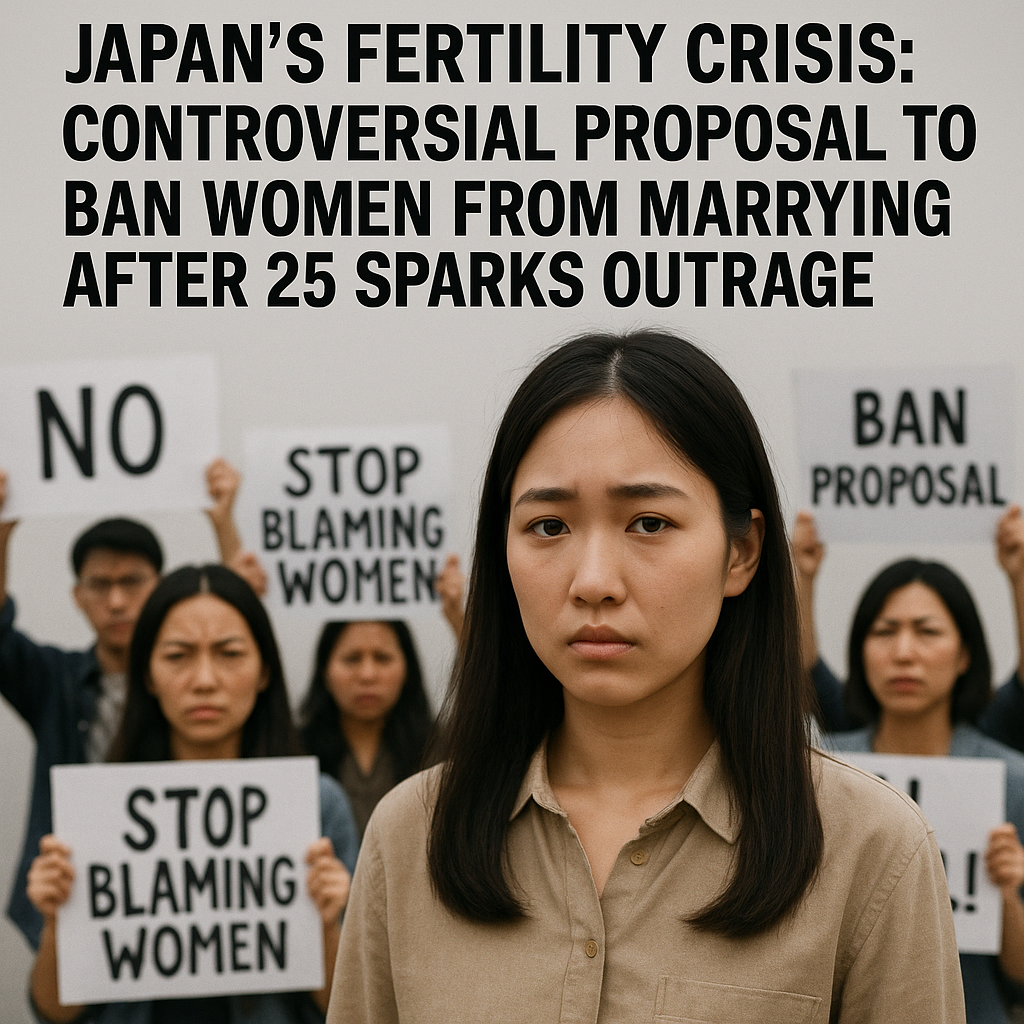In a nation grappling with a declining birth rate and an aging population, a recent proposal by Naoki Hyakuta, leader of Japan’s Conservative Party, has ignited widespread controversy and condemnation. Hyakuta’s suggestion to ban women from marrying after the age of 25 and to mandate hysterectomies at 30 has been met with outrage from political figures, academics, and the public alike.
The Proposal and Its Rationale
Hyakuta’s remarks, made during a YouTube video on November 8, 2024, were intended to address Japan’s demographic challenges. He argued that by imposing such restrictions, women would be compelled to have children earlier, thereby increasing the birth rate. “If we don’t take drastic measures, Japan’s future is at risk,” Hyakuta stated in the video. He also proposed restricting women’s access to university education after the age of 18, suggesting that they should focus on childbearing instead.
Immediate Backlash and Apology
The proposal was met with immediate and widespread criticism. Sumie Kawakami, a lecturer at Yamanashi Gakuin University and author on gender issues, expressed her disbelief, stating, “I cannot believe that a Japanese politician has said such a thing. I can only see these comments as a call to violence against women.” Actress Chizuru Higashi also condemned the remarks, saying, “The idea of taking away reproductive ability if you have not had a child by the age of 30 is terrifying, even as a joke.”
In response to the backlash, Hyakuta issued an apology, claiming that his comments were intended as a “science-fiction storyline” to provoke discussion on Japan’s fertility issues. “I meant to say that we cannot transform the social structure unless we do something that goes that far,” he explained. However, many critics found the apology insufficient, arguing that the remarks reflected a troubling attitude toward women’s rights.


Political and Public Repercussions
Hyakuta’s proposal has also had political ramifications. Takashi Kawamura, Joint Chairperson of the Conservative Party, apologized on Hyakuta’s behalf, stating, “I apologize on his behalf to the supporters of the Conservative Party and to the Japanese people.” The party has since distanced itself from Hyakuta’s comments, emphasizing that they do not align with its values.
The controversy has sparked a broader debate about Japan’s demographic challenges and the role of women in society. While some argue that drastic measures are necessary to address the declining birth rate, others contend that such proposals are regressive and violate women’s rights. “We need policies that support women in balancing career and family, not policies that restrict their choices,” said Kaori Arimoto, a senior member of the Conservative Party.

Broader Context: Japan’s Demographic Challenges
Japan’s declining birth rate is a significant concern for the nation’s future. Preliminary data from the Ministry of Health, Labor, and Welfare indicated 350,074 births from January to June 2024, a 5.7% decrease compared to the same period in 2023. The year 2023 recorded 758,631 babies born, a 5.1% decline from the previous year and the lowest number of births since Japan started compiling the statistics in 1899.
Experts warn that without actionable policy changes to support working parents, particularly women, and without addressing economic insecurity, the fertility crisis may continue to worsen. “We need to create an environment where women can have children without sacrificing their careers,” said sociologist Haruto Tanaka.
Naoki Hyakuta’s controversial proposal has highlighted the urgent need for policies that support women’s rights and address Japan’s demographic challenges. While the proposal has been widely condemned, it has also sparked a necessary conversation about the future of Japan’s society and the role of women in shaping that future. As the nation continues to grapple with its declining birth rate, it is imperative that solutions are found that respect individual rights and promote gender equality.








